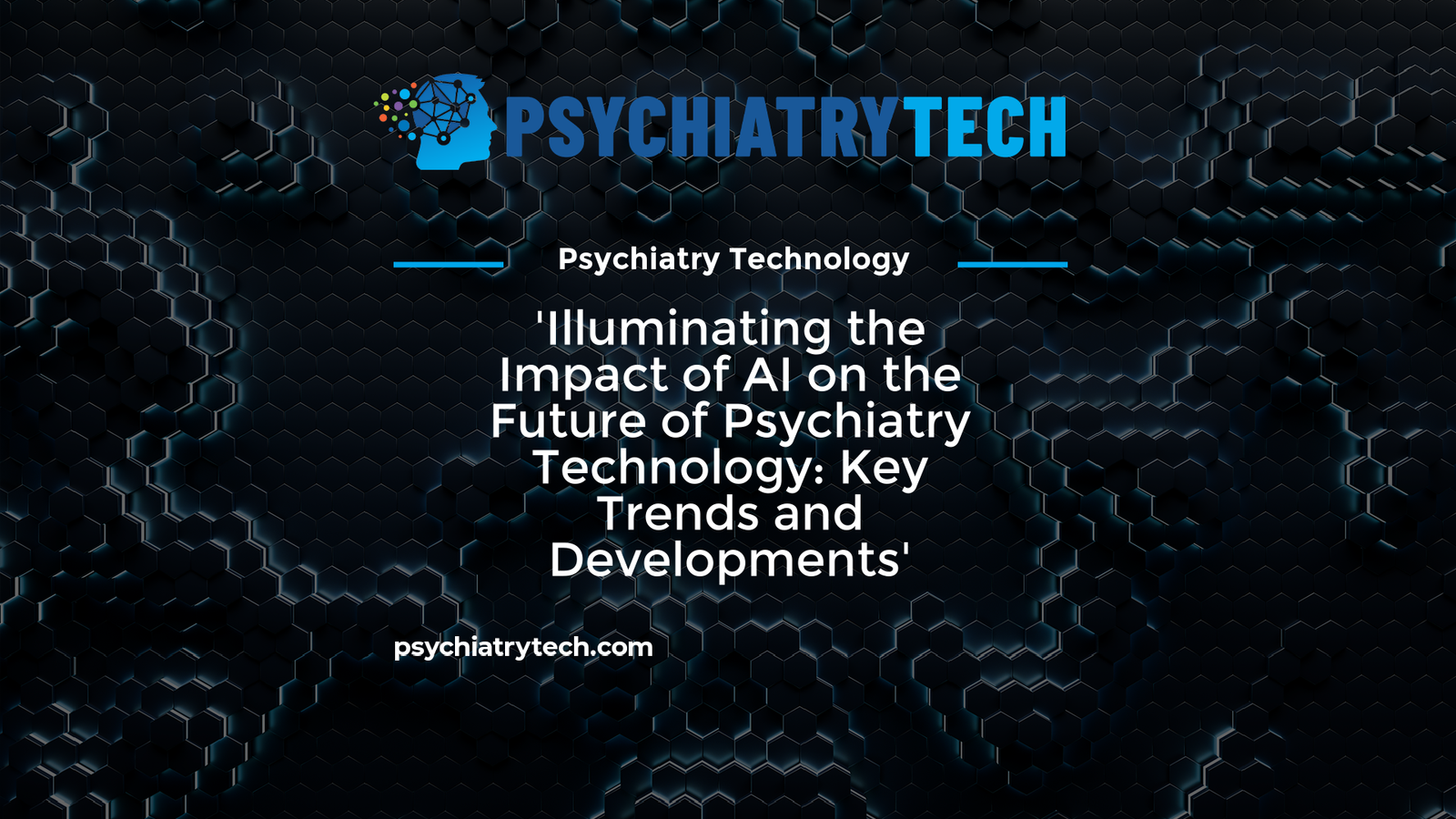Illuminating the Impact of AI on the Future of Psychiatry Technology: Key Trends and Developments
Artificial intelligence (AI) has become a ubiquitous presence in contemporary technology, affecting industries and communities worldwide. In the field of psychiatry, AI is making significant strides through the development of new tools and methods that can enhance diagnosis, treatment, and understanding of mental illness.

Discover The World's MOST COMPREHENSIVE Mental Health Assessment Platform
Efficiently assess your patients for 80+ possible conditions with a single dynamic, intuitive mental health assessment. As low as $12 per patient per year.
According to a recent article published in the American Psychological Association (APA) Monitor, AI is increasingly being embraced by the psychology community, with many experts citing its potential benefits. These benefits include the ability to detect early signs of mental disorders, provide personalized interventions, and explore new treatment options.
AI and Diagnosis
One of the most significant promises of AI in psychiatry is its potential to improve diagnosis. Current methods of diagnosis often rely on a combination of subjective evaluations, patient reports, and clinical observations. AI-based systems can parse through vast amounts of data to identify patterns and detect symptoms that may be missed by human clinicians or traditional methods. This can lead to earlier interventions, more accurate diagnoses, and improved outcomes for patients.
Researchers have already developed AI systems capable of identifying and tracking the progression of several mental illnesses, including depression, bipolar disorder, and schizophrenia. These systems use machine learning algorithms that analyze data from speech, facial expressions, and other behavioral and physiological markers to identify patterns that may be indicative of a disorder.
AI and Treatment
AI is also making headway in the development of more personalized treatment approaches in psychiatry. By analyzing a patient’s data and symptoms, an AI system can recommend specific interventions that are tailored to their needs and preferences. This individualized approach could lead to more effective treatments that better address the unique challenges and experiences of each patient.
In addition to personalized treatment, AI is also being used to explore new treatment options and unlock new insights into the causes and mechanisms of mental illness. Researchers are using machine learning algorithms to analyze data from brain scans, genetics, and other biological markers to understand the complex factors that contribute to different disorders. With these insights, researchers hope to develop more targeted and effective interventions for mental illness.
The Future of Psychiatry Technology
As AI continues to advance, the possibilities for its role in psychiatry are nearly limitless. Some experts predict that AI-based systems will be able to predict the onset of mental illnesses before symptoms even appear, allowing for earlier interventions and more effective treatments. Others envision AI systems that can simulate therapeutic interactions and provide remote support to individuals in need.
Despite these potential benefits, however, there are also concerns about the role of AI in psychiatry. Some worry that reliance on AI and machine learning systems could lead to dehumanized care and a loss of the interpersonal relationships that are critical to effective treatment in psychiatry. Others argue that the lack of diversity in AI development teams and datasets could lead to biased or incomplete diagnoses and treatment recommendations.
Conclusion
AI is poised to make a significant impact on the field of psychiatry, with the advent of new technologies and methods that could transform the way mental illness is understood, diagnosed, and treated. While there are legitimate concerns about the potential risks and drawbacks of relying on AI in psychiatry, there is also reason to be hopeful about the possibilities for enhanced care and improved outcomes for patients. By staying abreast of the latest trends and developments in AI in psychiatry, mental health professionals and patients can work together to ensure that these new technologies are used responsibly, ethically, and effectively.

